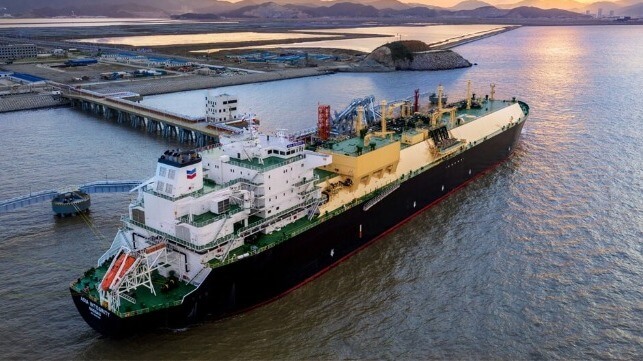Barbara Pickering Takes the Helm at Chevron Shipping

Chevron Shipping has tapped a longtime insider to steer the division after the impending retirement of Mark Ross, who has served as president since 2015 and has been in the company for 33 years.
The global marine subsidiary of Chevron Corp. announced that Barbara Pickering will assume the role of President on May 1. She is currently the Vice President of Operations, having risen through the ranks since joining the company over three decades ago as a ship charterer in London.
“I take immense pride in what we have accomplished in transforming Chevron Shipping Company into a world-class marine organization. Words cannot properly express how I feel about our organization and the deep appreciation I have for the people who run it – onboard our ships, at our terminals, and ashore. I have known Barbara for 30 years and I am thrilled she will now lead our company,” said Ross.
Holder of a bachelor’s degree in Maritime Studies from Liverpool University in the United Kingdom, Barbara has held positions of increasing responsibility with Chevron in the UK, Australia and the U.S since joining the company in 1991. She also currently serves as a Vice Chairman of the Oil Companies International Marine Forum.
It is a baptism by fire for Pickering, who will be taking over the leadership of Chevron Shipping at a crucial time. The industry is grappling with pressure to decarbonize and is facing a bigger threat from Iran-allied Houthi rebel attacks in the Red Sea.

that matters most
Get the latest maritime news delivered to your inbox daily.
While Chevron has continued transporting crude through the volatile Red Sea region, working in close collaboration with U.S and other naval forces, the company has admitted the crisis poses serious risks to global oil flows and prices. These could have impacts on its operations of transporting crude oil, liquefied natural gas, liquefied petroleum gas, refined petroleum products and chemicals.
Though Chevron does not have significant control over the worsening Red Sea crisis, the company - which operates a fleet of 30 ships and charters third-party ships - is under pressure to cut its emissions. Chevron is already investing in a ship modification project designed to reduce the carbon intensity of its LNG fleet operations. The project, which is expected to be completed by mid-2025, seeks to install new technologies aboard Chevron vessels to support their energy transition goals.
